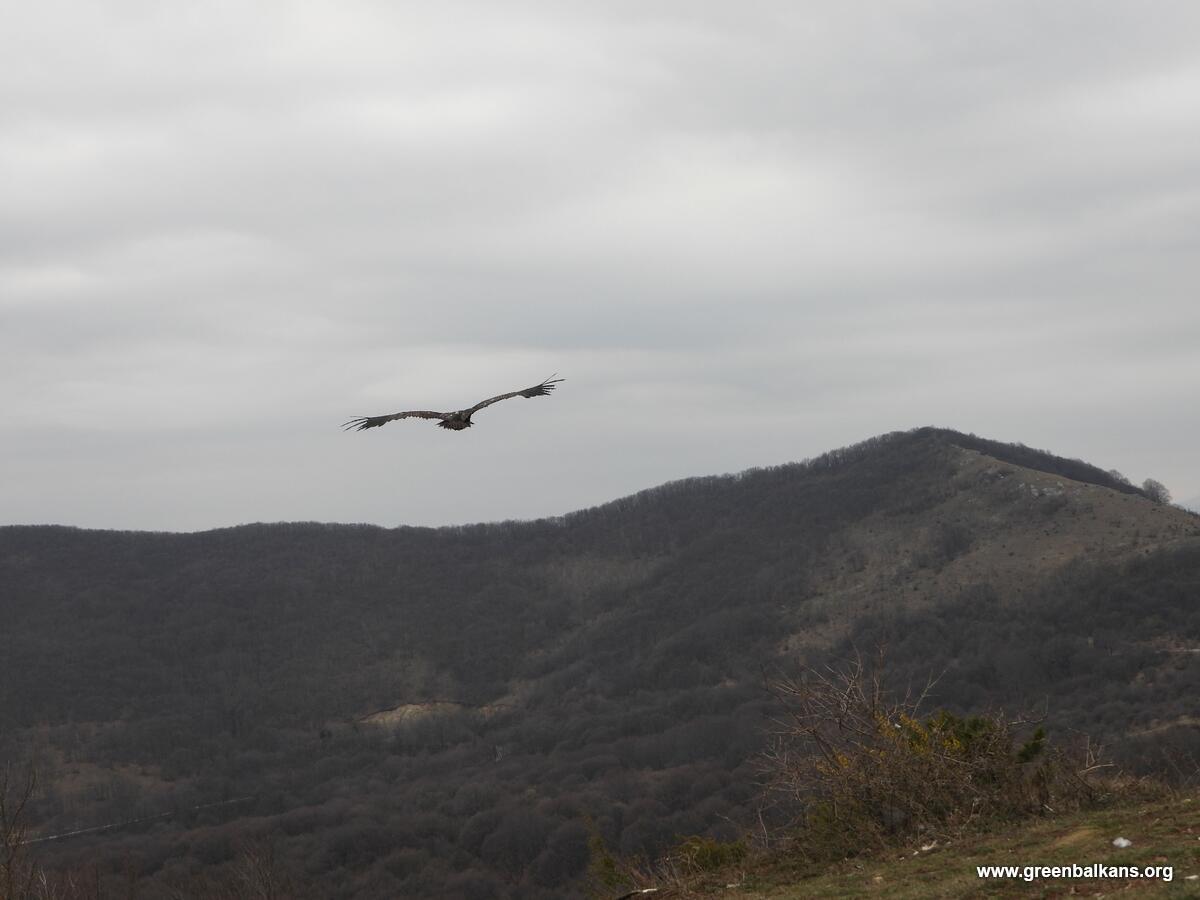The second newsletter of the LIFE Re Vultures project is out – you can now read about the exciting results of this project, notably on the photo exhibition about the vultures “Lords of the Rhodopean skies” that was exhibited in the centre of Sofia in Spring, also to mark the 25th anniversary of the EU’s Habitats Directive and LIFE Programme. In the newsletter you can also read about the restocking of red and fallow deer in the Eastern Rhodopes (to increase the natural food availability for griffon vultures) population, a fascinating story about an unexpected visit of a black vulture in a small Greek village, and the capture and tagging of griffon vultures in Bulgaria.
The project “Conservation of Black and Griffon vultures in the cross-border Rhodope Mountains”, is led by Rewilding Europe in partnership with Rewilding Rhodopes Foundation, Bulgarian Society for the Protection of Birds/Birdlife Bulgaria, WWF Greece, Vulture Conservation Foundation and Hellenic Ornithological Society/BirdLife Greece, and aims to recover and further expand the black and griffon vulture populations in this part of the Balkans, mainly by improving natural prey availability and reducing mortality factors such as poaching, poisoning and electrocution and collision with power lines.
The project includes tagging of vultures to study their dispersal and movements; increase of their food availability through releases of wild ungulates; creating a trained dog unit to locate poison baits; environmental education actions; support for local businesses linked to vulture watching; support of related local products; and insulating power line poles and mounting bird diverters to avoid collision. In this project, the VCF is doing an evaluation of the poisoning situation in Greece-Bulgaria, and has already organized an international workshop on supplementary feeding strategies for vultures.
The cross-border Rhodope Mountains are a unique landscape, with a very high biodiversity and a number of important Natura 2000 sites. Black vultures that breed in Greece forage in Bulgaria and griffon vultures that breed in Bulgaria feed in Greece. The area is also used by immature and non-breeding griffon vultures coming from Croatia and Serbia. The project also will deliver transboundary cooperation between experts and organisations from different countries.
You can read the newsletter here





